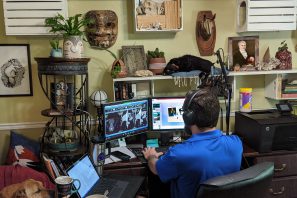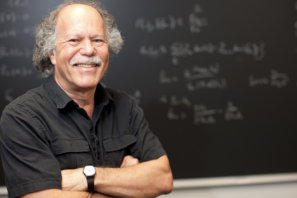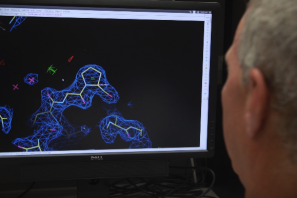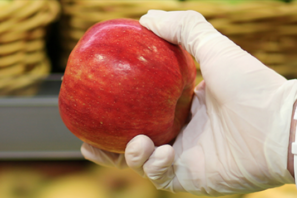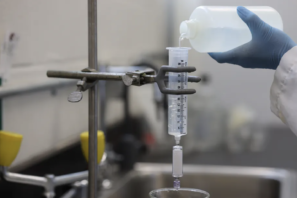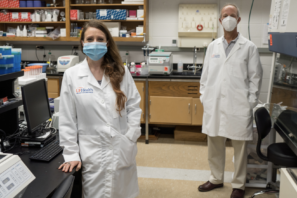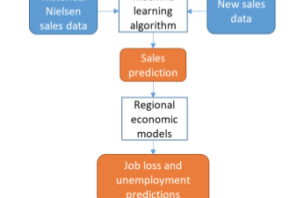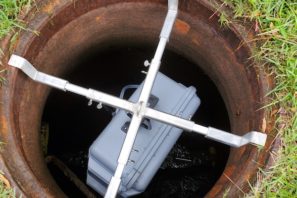Alex Fox-Alvarez leads online small group rounds with UF veterinary students on the surgery clinical clerkship who now required to learn remotely.
Infectious disease modeler and biostatistician Ira Longini is applying decades of experience to help design and analyze clinical trials to identify a safe and effective COVID-19 vaccine.
University of Florida virus experts are gathering genomic sequences from coronaviruses around the world to drive artificial intelligence (AI) research that could predict future spread and outbreaks of this and other strains.
A multi-region, multi-institution research and outreach team investigating the impact of COVID-19 on food and agricultural systems will host a...
Erin Westgate, a social psychologist and director of the Florida Social Cognition and Emotion Lab, hosted a Reddit Ask Me...
Keith Schneider, a professor and food safety expert at UF/IFAS hosted a Reddit Ask Me Anything addressing concerns on properly caring for fresh food during the COVID-19 pandemic.
From UF Public Relations Department, Rita Men outlines the 5 ways that CEOs can communicate to their teams during a crisis like COVID-19.
Imagine discovering an animal species you thought had gone extinct was still living – without laying eyes on it. Such was the case with the Brazilian frog species Megaelosia bocainensis.
Three common antihistamine medications have been found in preliminary tests to inhibit infection of cells by the coronavirus that causes COVID-19.
UF Health physicians put themselves at risk to provide critical medical relief around the globe.
As the physical and socioeconomic impacts of the COVID-19 pandemic continue to be explored by different experts, researchers at UF are using data from the past to establish a method for predicting the near-term economic impacts of the pandemic.
Students, staff and faculty get swabbed to check for potential COVID-19 infections. Beneath their feet, another testing system churns away, searching for the virus in UF’s wastewater.

